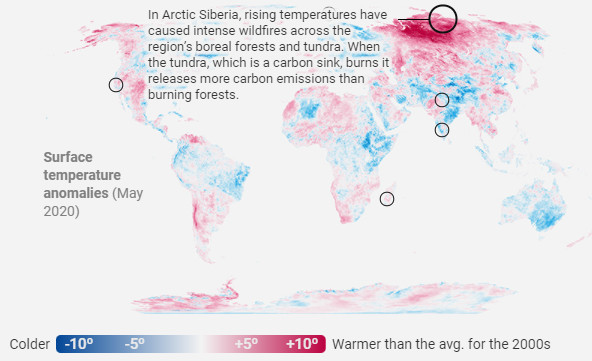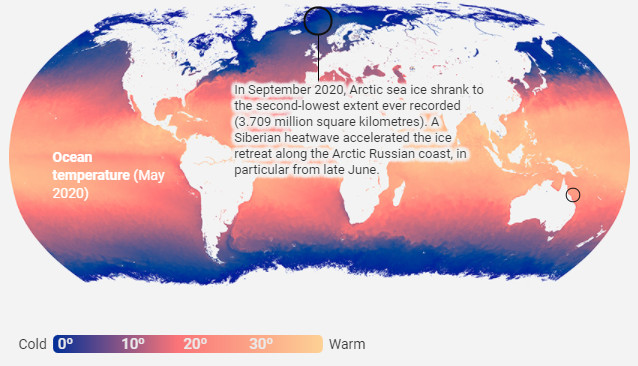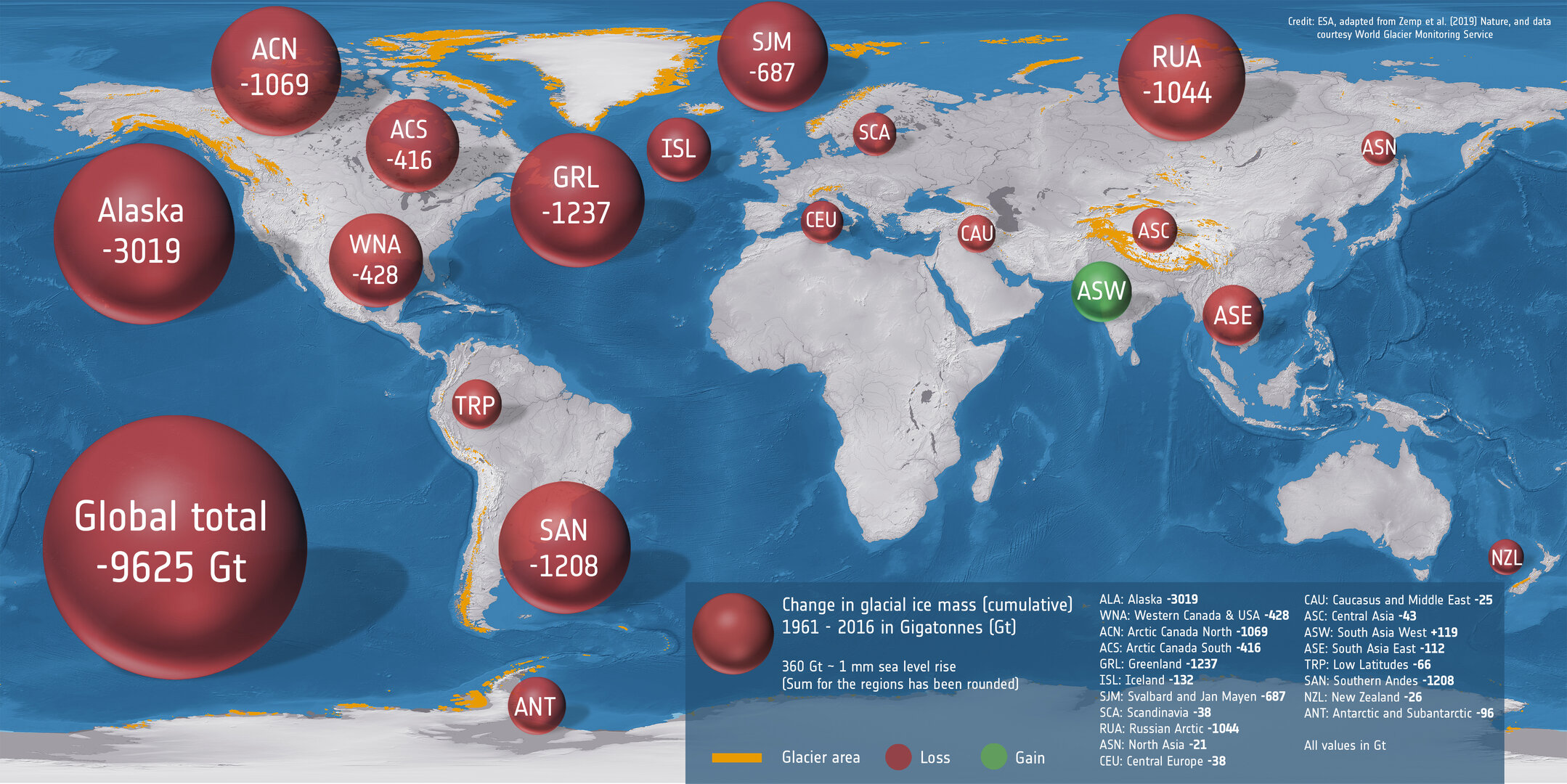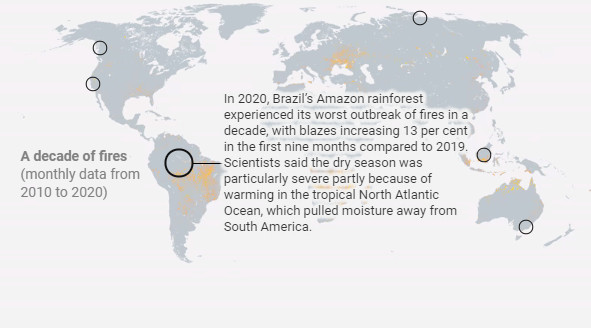Nouvelle
Mobilizing Climate Actors in International Geneva
Climate change is one of the most pervasive and threatening issues of our time, with far-reaching impacts in the 21st century. Climate change is expected to have unprecedented implications on where people can settle, grow food, build cities, and rely on functioning ecosystems for the services they provide. In many places, temperature changes and sea-level rise are already putting ecosystems under stress and affecting human well-being. International Geneva, with its unique cross-disciplinary expertise, is mobilized in the fight against climate change, on the agenda of numerous deliberations.
Global Climate Emergency
The Sixth Assessment Report (AR6) of the Intergovernmental Panel on Climate Change (IPCC) announced for 2022 recognizes that the magnitude of recent changes in the overall climate system and the current state of many aspects of the climate system are insufficient:
This report is a dire warning about the consequences of inaction. It shows that climate change is a grave and mounting threat to our wellbeing and a healthy planet. Our actions today will shape how people adapt and nature responds to increasing climate risks. Hoesung Lee, Chair of the IPCC
In the AR6, the IPCC emphasizes that the risks associated with global warming will inevitably increase in both the short and long term. Global warming has already reached 1.1°C and could reach 1.5°C well before 2040. The scientific evidence is unequivocal: climate change threatens humanity and the planet. Climate risks are appearing earlier than expected and more severely. Ecosystems and human populations are being pushed to their limits and beyond. Any further delay in concerted global action will destroy any hope for a livable future.
In October 2018, the IPCC issued a special report on the consequences of global warming of 1.5°C, finding that limiting global warming to 1.5°C would require rapid, far-reaching, and unprecedented changes in all aspects of society. While previous estimates focused on estimating the damage if average temperatures were to rise by 2°C, this report shows that many of the adverse impacts of climate change will materialize at the 1.5°C mark.
Even below 2°C of warming, some risks would lead to widespread, invasive, and potentially irreversible impacts. These damaging losses to ecosystems and human societies can be partially reduced by short-term actions limiting warming to about 1.5°C. However, IPCC estimates that from 2040 onward, human and natural systems will face increased risks. Ecosystems will face increasing extinction risks as warming increases. Water resources will also be impacted, posing many challenges to their management.
Impacts of Climate Change
The Intergovernmental Panel on Climate Change (IPCC) met for its fifty-eighth Session in the city of Interlaken, from 13 to 17 March 2023, to finalize the Synthesis Report of its sixth assessment cycle (AR6 SYR). The report, released on 20 March 2023, provided policymakers an overview of the state of knowledge on the science of climate change.
Human Health
According to IPCC, any increase in global warming is projected to affect human health, with significant negative consequences. Lower risks are projected at 1.5°C than at 2°C for heat-related morbidity and mortality and for ozone-related mortality if emissions needed for ozone formation remain high. Urban heat islands often amplify the impacts of heatwaves in cities. Risks from some vector-borne diseases, such as malaria and dengue fever, are projected to increase with warming from 1.5°C to 2°C, including potential shifts in their geographic range. Find more about the IPCC results on health in AR6 WGII Chapter 7.
According to the World Health Organization (WHO), climate change is expected to cause approximately 250 000 additional deaths per year between 2030 and 2050, due to malnutrition, malaria, diarrhoea and heat stress alone. The direct damage costs to health are estimated to be between US$ 2–4 billion per year by 2030. In October 2022 ahead of COP26, WHO published a Special Report on Climate Change and Health and open letter spelling out the many and inseparable links between climate and health and calling to step up climate change. In September 2022, WHO and over 190 other signatories from the health sector called for a Fossil Fuel Non-Proliferation Treaty to protect the health of current and future generations.
Human Rights
Climate change is an existential threat for people and the planet. Its harmful effects undermine the full enjoyment and realization of all human rights, disproportionately affecting those who are already in vulnerable situations. Over the past years, the Human Rights Council took on resolutions and discussions on specific aspects of climate change, while Special Rapporteurs contributed with reports on specific thematic angles within their mandates. In September 2022, the UN Special Rapporteur on climate change presented his first report on the “Promotion and protection of human rights in the context of climate change mitigation, loss and damage and participation“, stressing that the climate change emergency comes with inherent serious human rights abuse.
Biodiversity and Ecosystems
On land, impacts on biodiversity and ecosystems, including species loss and extinction, have already been observed with rising temperatures, increased ocean acidity and decreased ocean oxygen levels. These terrestrial, freshwater and coastal ecosystems provide value and services to humans. Global warming of 1.5°C is projected to shift the ranges of many marine species to higher latitudes as well as increase the amount of damage to many ecosystems. It is also expected to drive the loss of coastal resources and reduce the productivity of fisheries and aquaculture. Anthropogenic climate change has further increased the intensity of precipitation and weather events. These changes and the resulting hydrological effects have affected species and ecosystems, with negative consequences for food security, water resources, and ecosystem services in general.
The latests IPCC Report on Impacts, Adaptation and Vulnerability (AR6, WGII) provides in-depth evidence of the impacts on terrestrial and marine ecosystems, water-related risks, as well as agriculture, forestry, fisheries and aquaculture. The IPCC also provides specific analysis on the impacts on particular ecosystems in its special reports: Special Report on the Ocean and Cryosphere in a Changing Climate and the Special Report on Climate Change and Land.
Tipping Points
There is growing evidence that important tipping points, leading to irreversible changes in major ecosystems and the planetary climate system, may already have been reached or passed. Tipping points in the climate system refer to thresholds that can occur as a consequence of human induced climate change, and that lead to changes are abrupt, high-impact, large-scale and often irreversible. Ecosystems as diverse as the Amazon rainforest and the Arctic tundra, may be approaching thresholds of dramatic change through warming and drying. Mountain glaciers are in alarming retreat and the downstream effects of reduced water supply in the driest months will have repercussions that transcend generations.
In spring 2022, Switzerland proposed that the IPCC elaborate a Special Report on “Climate Tipping Points and their Implications for Habitability and Resources”, which will be prepared in the framework of the IPCC’s 7th Assessment Cycle, scheduled to start in 2023.
Climate Action
Climate Mitigation
The scientific community and international organizations, including the UN Environment Programme, agree that the current climate emergency requires adequate and immediate action. It is one of the most pervasive and threatening crises of our time. Limiting global warming to +1.5°C is no longer possible without immediate and large-scale reductions in greenhouse gas emissions. Rapid, far-reaching and long-term transitions in energy, land use, infrastructure (including in transportation and buildings), and industrial systems are needed. According to the IPCC, such transitions are unprecedented in terms of scale and imply deep emissions reductions in all sectors, a wide portfolio of mitigation options and a significant upscaling of investments in those options. Global net human-caused emissions of carbon dioxide (CO2) would need to fall by about 45 percent from 2010 levels by 2030, reaching ‘net zero’ around 2050. Progress depends on countries and their ability to cover ground on their commitments under the Paris Agreement and, eventually, their collective contributions to keep the global average temperature well below 2°C.
The transition to a net-zero future also bring important opportunities. According to the ILO, if properly managed, climate change action can lead to more and better jobs. Both adaptation to climate change and measures to mitigate greenhouse gas (GHG) emissions offer opportunities to create new jobs, while securing existing ones. A transition to a low-carbon, greener economy will imply the creation of new jobs in environmentally friendly production processes and outputs, whereas other jobs will be at risk, in particular in those sectors with fewer options for a transition towards a more sustainable ways of production.
The United Nations Environment Programme Emissions Gap Report 2023 found that the world is heading for a temperature rise far above the Paris Agreement goals, unless countries deliver more than they have promised. It calls for all nations to accelerate economy-wide, low-carbon development transformations, highlighting that countries with greater capacity and responsibility for emissions will need to take more ambitious action and support developing nations.
Climate Adaptation
The contribution of IPCC Working Group II to AR6 highlights the insufficiency of current adaptation efforts. Despite the progress made since the previous report (AR5) was published in 2014, the solutions currently being implemented are short term. The report attests to instances of adaptation measures that exacerbate risks or create vulnerabilities. However, adaptation solutions exist that can reduce the risks of climate change to ecosystems and people and states. Fostering resilience to the consequences of climate change depends critically on urgent and ambitious greenhouse gas reductions and adaptation measures, as well as intensified cooperation between governing bodies at all spatial scales and planning horizons.
Climate-change-resilient development is possible when governments, civil society and the private sector make inclusive development choices that prioritize risk reduction, equity and justice.
— IPCC Working Group II to AR6
Climate change is increasing the vulnerability of human territories. The global trend of increasing urbanization must be responded to with a resilient consideration of projects, which also requires adapting more rural areas under a resilient global project. Moreover, by 2050, more than one billion people will be living in coastal areas. Consequently, there is a need to implement nature-based, resilient solutions for natural and human systems to avoid climate-aggravated risks, including sea level rise. Nevertheless, even though much progress has been made in adaptation planning and implementation, including growing political and public awareness, a significant gap exists between current levels of adaptation and those required in the face of climate risks.
Protecting and restoring ecosystems for biodiversity is essential for climate resilience. Maintaining resilient biodiversity and ecosystem services will require the preservation of approximately 30%-50% of the world’s surface. Ecosystem services were conceived with the idea that this preservation also has benefits for humans, including in terms of resources, livelihoods, food production, and health. However, biodiversity and ecosystem services have a limited capacity to adapt beyond 1.5°C of warming, making resilience to climate change even more challenging.
The 2023 edition of UNEP Adaptation Gap Report, providing a finance assessment chapter and a thematic deep-dive chapter on loss and damage, implementation, and planning, finds that progress on climate adaptation is slowing when it should be accelerating.
Climate Governance & International Instruments
United Nations Framework Convention on Climate Change
The UN family is at the forefront of the effort to save our planet. In 1992, its “Earth Summit” produced the United Nations Framework Convention on Climate Change (UNFCCC) as a first step in addressing the climate change problem. Today, it has near-universal membership. The 197 countries that have ratified the Convention are Parties to the Convention. The ultimate aim of the Convention is to prevent “dangerous” human interference with the climate system.
Kyoto Protocol
By 1995, countries launched negotiations to strengthen the global response to climate change, and, two years later, adopted the Kyoto Protocol. The Kyoto Protocol legally binds developed country Parties to emission reduction targets. The Protocol’s first commitment period started in 2008 and ended in 2012. The second commitment period began on 1 January 2013 and will end in 2020. There are now 197 Parties to the Convention and 192 Parties to the Kyoto Protocol.
Paris Agreement
At the 21st Conference of the Parties in Paris in 2015, Parties to the UNFCCC reached a landmark agreement to combat climate change and to accelerate and intensify the actions and investments needed for a sustainable low carbon future. The Paris Agreement builds upon the Convention and – for the first time – brings all nations into a common cause to undertake ambitious efforts to combat climate change and adapt to its effects, with enhanced support to assist developing countries to do so. As such, it charts a new course in the global climate effort.
2019 Climate Action Summit
On 23 September 2019, Secretary-General António Guterres convened a Climate Summit to bring world leaders of governments, the private sector and civil society together to support the multilateral process and to increase and accelerate climate action and ambition.
UN Climate Conference (COP28)
The 2023 UN Climate Conference (COP28) took place in Dubai, United Arab Emirates from 30 November to 13 December 2023 under the Presidency of the United Arab Emirates (UAE).
COP28 was the moment when the world took stock of its progress on the Paris Agreement.
As agreed in the Paris Agreement, countries and stakeholders undergo the global stocktake progress to track their collective advancement towards meeting the goals of the Paris Climate Change Agreement. The GST takes place every five years, with the first-ever stocktake scheduled to conclude at COP28. This helps aligning efforts on climate action, including measures that need to be put in place to bridge the gaps in progress. According to the Synthesis report by the co-facilitators on the technical dialogue of the first global stocktake, launched in September 2023, the world is not on track to meet the long-term goals set out in the Paris Agreement for limiting global temperature rise, calling for a commitment to decisive action.
Geneva Environment Network Briefing on COP28
The Permanent Mission to the United Arab Emirates to the United Nations Office and other international organizations in Geneva and the Geneva Environment Network hosted a briefing on the challenges of and opportunities in addressing climate change, and the contributions of international Geneva to the global climate change agenda. → Rewatch the session and access resources
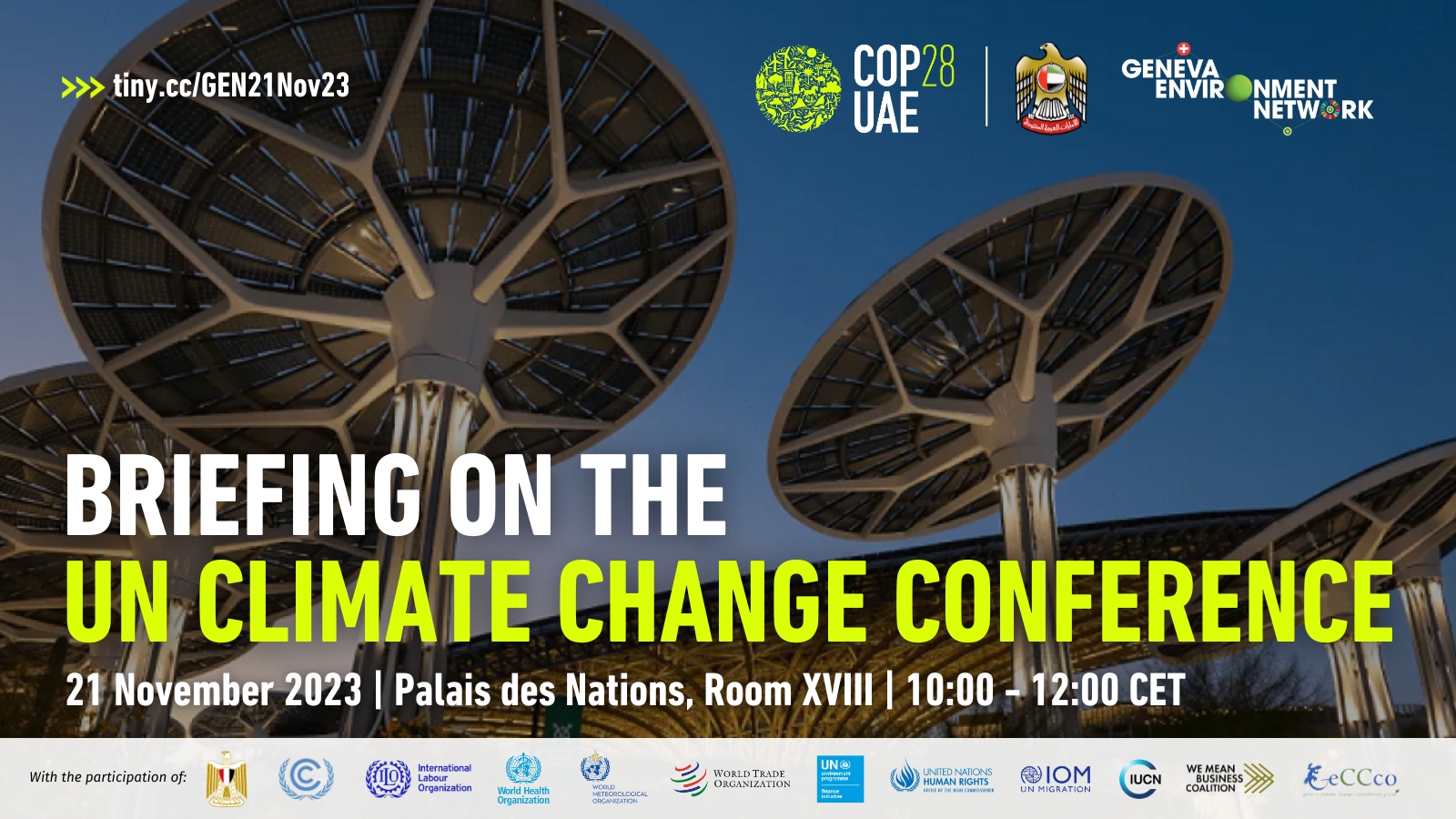
The Role of Geneva
International Geneva is mobilized in the fight against climate change. In addition to the secretariat of the Intergovernmental Panel on Climate Change (IPCC) and the headquarters of the World Meteorological Organization, the numerous international organizations, permanent missions, non-governmental organizations and other institutions based in Geneva place the climate issue at the heart of their work.
Referred to as the world capital for multilateralism, Geneva is at the center of numerous debates and negotiations in the fields of science, health, human rights, development, trade and green finance, employment, peacebuilding and security, disaster risk reduction, humanitarian issues, as well as new technologies and innovation. This interdisciplinarity allows International Geneva to have unique cross-disciplinary expertise on climate, this theme being on the agenda of numerous deliberations.
Organizations are listed in alphabetical order
2050Today
2050Today is the Geneva climate action forum where over 60 institutions of International Geneva, such as permanent missions, international organizations, academia, private and civil society entities, come together to tackle climate change by measurably reducing GHG emissions.
In accordance with the 2050Today Charter, 2050Today mobilizes climate action by helping our members measure their emissions, implement common and customized solutions through working groups and benefit from applied research.
Center for International Environmental Law (CIEL)
CIEL is committed to applying a human rights-based approach as a means to protect the peoples and communities on the frontline of climate change. In doing so, it works to design and integrate policies to safeguard rights and ecosystems and to ensure effective public participation within key climate institutions and mechanisms. CIEL also provide support and build the capacity of peoples and communities adversely affected by climate impacts and climate policies to support their direct participation in those decisions that affect their lives and livelihoods, including working with partners to develop new legal strategies to hold corporations accountable and accelerate the transition away from fossil fuels.
Earthjustice
Earthjustice works with partners to end the use of fossil fuels and bring about a swift and just transition to zero carbon emissions and 100% clean energy.
Geneva Climate Change Consultation Group (GeCCo)
GeCCco gathers civil society organizations working in Geneva to bring forward the human rights issues raised by climate change and to introduce these climate change issues in the work of the Geneva-based UN Human Rights Bodies. The GeCCco also keeps a close eye on the UNFCCC processes thanks to the NGO Working Group on Human Rights and Climate Change, the oldest and main coalition on this matter, to which a number of the participating organizations are also members.
Geneva Interfaith Forum on Climate Change, Environment and Human Rights (GIF)
From its inception in 2008, the Geneva Interfaith Forum on Climate Change, Environment and Human Rights (GIF) has addressed climate change within a holistic perspective, recognising its environmental, developmental, political, economic, social and cultural implications. Furthermore, from a spiritual and ethical perspective the GIF advocates for climate justice to be central to human rights and climate change discussions.
Geneva Pledge on Human Rights and Climate Action
The Geneva Pledge on Human Rights and Climate Action is a voluntary initiative undertaken by countries to facilitate the sharing of best practice and knowledge between human rights and climate experts at a national level. In recognizing the injustice faced by the poorest and most vulnerable people who are disproportionately affected by the impacts of climate change, this diverse group of countries pledge to enable meaningful collaboration between national representatives in UNFCCC and the processes of the Human Rights Council. The practical and constructive initiative will help countries to better design climate action that is good for people as well as the planet.
Group on Earth Observations (GEO)
Earth observations relevant to climate action are not limited to weather or climate, but are much broader and include terrestrial and socio-economic variables. GEO makes available Earth observations in support of effective policy responses for climate change adaptation, mitigation and other specific provisions, working with partners to enhance global observation systems for climate action. GEO will be present at COP26 with a series of events to promote the role of Earth observations in providing actionable information for climate adaptation and mitigation.
Impact Initiatives
Impact Initiatives is a leading Geneva-based think-and-do tank that aims to improve the impact of humanitarian, stabilization and development action through data, partnerships and capacity-building programmes. Through its REACH, AGORA, and PANDA initiatives, IMPACT Initiatives supports both humanitarian and development agencies translate data to knowledge to : i) be better prepared before a crisis ii) respond in a climate and environmentally conscious manner iii) design long-term solutions for climate mitigation and adaptation.
Intergovernmental Panel on Climate Change (IPCC)
The IPCC was set up to provide an objective source of scientific information. In 2013, the IPCC provided more clarity about the role of human activities in climate change when it released its Fifth Assessment Report. It is categorical in its conclusion: Climate change is real and human activities are the main cause.
International Committee of the Red Cross (ICRC)
The ICRC works to adapt its response to support populations coping with the dual shocks of climate risks and conflicts. In 2020, the ICRC also released the report “When rain turns to dust” illustrating how countries mired in conflict are disproportionately impacted by climate variability and extremes, due to the limited adaptive capacity of people, systems, and institutions already coping with the consequences of conflicts.
International Emissions Trading Association (IETA)
The mission of IETA is to empower business to engage in climate action, advancing the objectives of the United Nations Framework Convention on Climate Change and the Paris Agreement as informed by IPCC science and establish effective market-based trading systems for greenhouse gas (GHG) emissions and removals that are environmentally robust, fair, open, efficient, accountable and consistent across national boundaries.
International Federation of Red Cross and Red Crescent Societies (IFRC)
The IFRC held its first-ever virtual climate summit, Climate: Red, on 9-10 September 2020. It brought together members, staff, youth activists, government officials, experts, and indigenous leaders from around the world to discuss how to tackle the climate emergency. Together with the ICRC, the IFRC has also led the development of a Climate and Environment Charter for Humanitarian Organizations to guide the sector as it responds to these crises and to rally collective action.
International Institute for Sustainable Development (IISD)
IISD is actively involved in the two main responses to climate change: adaptation and mitigation. It partners with countries to help them cope with a changing climate and transition to clean energy as quickly as possible. By backing major initiatives like fossil fuel subsidy reform and climate adaptation planning, IISD uses its expertise to lessen the flow and concentration of heat-trapping greenhouse gases and help people build a more resilient future.
International Labour Organization (ILO)
Spearheaded by the ILO it launched the Climate Action for Jobs Initiative by United Nations Secretary-General António Guterres. The initiative brings together governments, workers’ and employers’ organizations, international institutions, academia and civil society to place jobs at the heart of ambitious climate action and to promote a just transition.
International Organization for Migration (IOM)
Since 2007, IOM has been working on migration, environment and climate change. Since 2015, it hosts a dedicated Migration, Environment and Climate Change Division (MECC) that addresses the migration, environment and climate nexus. Through it, IOM oversees, supports and coordinates the development of policy guidance for activities with a migration, environment and climate change dimension. IOM established the Environmental Migration Portal: Knowledge Platform on People on the Move in a Changing Climate in 2015. The Portal provides up-to-date information on key policy processes and developments, capacity building efforts, research and publications, and operational projects addressing the migration, environment and climate change nexus. The Portal highlights IOM’s efforts, including with partners, as we work together towards addressing one of the biggest challenges of our times, migration in the context of environmental and climate change.
International Telecommunication Union (ITU)
Through its Radiocommunication sector (ITU-R), Standardization sector (ITU-T) and Development sector (ITU-D), ITU covers the role of digital technologies within climate change, to tackle e-waste and facilitate energy efficiency.
International Union for Conservation of Nature (IUCN)
The IUCN assesses the impacts of climate change on species and ecosystems. Through its work on ecosystem-based mitigation, adaptation and disaster risk reduction, it also highlights the important role of nature-based solutions to climate change. It also works to ensure that climate policy and action are gender-responsive, socially inclusive and take into account to the needs of the most vulnerable.
Office of the United Nations High Commissioner on Human Rights (OHCHR)
As climate change threatens the effective enjoyment of a range of human rights, the OHCHR aims to ensure that environmental and climate policies and plans are implemented in accordance with international human rights standards. To help States, businesses and other duty-bearers meet this expectation, OHCHR’s Key Messages on Human Rights and Climate Change, outline key human rights obligations in the context of climate change. Since 2015, OHCHR has also organized annual Human Rights Council (HRC) panel discussions and produced analytical studies on various subjects on climate change and human rights.
Partnership for Environment and Disaster Risk Reduction (PEDRR)
PEDRR is a global partnership of 24 organizations that promotes ecosystem management as a key strategy to enable vulnerable communities and countries to reduce disaster risk and build resilience to disasters and climate change.
Platform on Disaster Replacement
Climate refugees are on the increase and the Platform on Disaster Displacement is a State-led initiative that aims to follow up on the work started by the Nansen Initiative and to implement the Nansen Initiative – Agenda for the Protection of Cross-Border Displaced Persons in the Context of Disasters and Climate Change, endorsed by more than 100 States in October 2015.
Regions of Climate Action (R20)
R20 works to support sub-national governments around the world to develop and finance low-carbon and climate resilient infrastructure projects in the fields of renewable energy, energy efficient lighting and waste optimization.
Special Rapporteur on Human Rights and Climate Change (SR Climate)
At the 48th session of the Human Rights Council in October 2021, the Human Rights Council adopted a resolution establishing the mandate of a Special Rapporteur on the promotion and protection of human rights in the context of climate change (resolution 48/14), whose mandate is to “study and identify how the adverse effects of climate change, affect the full and effective enjoyment of human rights.” At the 49th session of the Human Rights Council in March 2022, Ian Fry was appointed as the first SR Climate, who has outlined six thematic priorities (forthcoming link: A/HRC/50/39; advanced unedited version of the report) that he will focus on during his mandate:
- The promotion and protection of human rights in the context of mitigation, adaptation, and financial actions to address climate change, with particular emphasis on loss and damage;
- Addressing the human rights implications of climate change displacement including legal protection of people displaced across international borders;
- Exploring approaches to enhance climate change legislation, supporting climate change litigation and advancing the principal of intergenerational justice;
- Corporate accountability with respect to human rights and climate change;
- The protection of human rights through just transition for workers in industries that contribute to climate change; and
- Exploring the impacts of new technologies associated with climate change mitigation on human rights.
United Nations Office for Disaster Risk Reduction (UNDRR)
UNDRR oversees the implementation of the Sendai Framework for Disaster Risk Reduction 2015-2030, supporting countries in its implementation, monitoring and sharing what works in reducing existing risk and preventing the creation of new risk. As climate-related risks are increasingly affecting people around the world, UNDRR is also actively promoting climate adaptation to reduce these risks.
United Nations Economic Commission for Europe (UNECE)
The UNECE region is a major source of greenhouse gas emissions, responsible for 34% of the world’s CO2 emissions from fossil fuel combustion. The people of the region are increasingly feeling the impacts of climate change – from wildfires to flooding, heatwaves and drought. Through its norms, standards, conventions and policy assistance, UNECE provides key tools supporting countries in their climate change mitigation and adaptation efforts.
United Nations Environment Programme (UNEP)
The work of UNEP on climate action cuts across the fields of science, policy, technology and finance. It empowers countries to pursue low-emission development and boost their capacity to adapt and be resilient to climate heating. UNEP is also working to implement the Paris Agreement and its contributions include bringing science to policymakers, playing a leading role in transformative global partnerships, and helping dozens of countries develop national plans to cut greenhouse gas emissions. In addition, UNEP equips countries to seize new investment opportunities that reduce greenhouse gas emissions from deforestation and forest degradation and supports the development of new finance models to accelerate the transition to a green economy. Through the Climate Finance Unit, UNEP also focuses on supporting developing countries to access climate finance (directly and through accredited entities) from the Green Climate Fund (GCF), the Global Environment Facility (GEF), and the Adaptation Fund (AF) as well as through other bilateral or multilateral public sources.
United Nations High Commissioner for Refugees (UNHCR)
https://www.unhcr.org/what-we-do/build-better-futures/environment-disasters-and-climate-change/climate-change-and
United Nations Human Rights Council
The Human Rights Council has contributed to raising awareness of the links between human rights and climate change by successive and targeted clarifications of the ways climate change affects human rights, including through the adoption of a series of resolutions related to climate change and human rights. The OHCHR also published a factsheet on the “Frequently asked questions on human rights and climate change”
In a resolution (A/HRC/44/L.5) on human rights and climate change, the UN Human Rights Council decided to incorporate a panel discussion focusing on the adverse impact of climate change on the full and effective enjoyment of human rights by older persons and best practices and lessons learned in the promotion and protection of the rights of older persons. The Council also requested a study on the promotion and protection of the rights of older persons in the context of climate change, including their particular vulnerabilities, and to provide all the human and technical assistance necessary for the effective and timely realization of the above-mentioned panel discussion and the summary report thereon.
UN-REDD Programme
Since 2008 the UN-REDD Programme has been supporting 65 partner countries in their nationally led efforts to become “REDD+ ready” and qualify for results-based payments. Within the UN-REDD Programme, UNEP leads on private sector engagement, safeguards, knowledge management and communications. The Paris Climate Agreement also recognizes REDD+ and the central role of forests in Article 5. To date, 118 countries have included forest and land use in their Nationally Determined Contributions pledges.
World Business Council for Sustainable Development (WBCSD)
The Climate Policy Working Group members of WBCSD meet regularly to shape key messages, share insights and plan for events to bring the voice of business. Topical issues today include Paris Agreement implementation and ambition, carbon pricing and Science-Based Targets (SBTs).
World Economic Forum (WEF)
The WEF Climate Change Intelligence is a visual representation of climate change and provides an overview and the key trends affecting it, along with summaries and links to the latest research and analysis on each of the trends.
World Health Organization (WHO)
The WHO indicates that the world population is encountering unfamiliar human-induced changes in the lower and middle atmospheres and world-wide depletion of various other natural systems. Beyond the early recognition that such changes would affect economic activities, infrastructure and managed ecosystems, there is now recognition that global climate change poses risks to human population health. Climate change is emerging as a major theme in population health research, social policy development, and advocacy. Consideration of global climatic-environmental hazards to human health will become a central role in the sustainability transition debate. To amplify WHO’s climate and health messaging and addressing the climate crisis as an health crisis, WHO appointed in June 2023 Dr Vanessa Kerry as the first-ever Director-General Special Envoy for Climate Change and Health.
World Meteorological Organization (WMO)
The WMO helps its members to monitor the Earth’s climate on a global scale so that reliable information is available to support evidence-based decision-making on how to best adapt to a changing climate and manage risks associated with climate variability and extremes. Climate information is essential for monitoring the success of efforts to reduce greenhouse gas emissions that contribute to climate change, as well as for promoting efforts to increase energy efficiency and to transition to a carbon-neutral economy.
WWF
WWF works to tackle the climate crisis in a variety of ways. From encouraging governments to implement more ambitious climate policies, to supporting the shift to renewable energy, to working with cities, businesses and communities to create a climate-resilient, net-zero future. WWF’s goal is to adaptively halve greenhouse gas emissions through a stark reduction in energy demand, an increase of at least 40% of non-hydro renewable energy in electricity mix and the implementation of nature-based solutions at scale which ensure people and nature resilience to climate change. In June 2023, WWF adopted its climate action plan “Climate action right now: Everyone, everywhere, all at once” enshrining its expectations for COP28 and achieving the goals set by the Paris Agreemtn.
Learning
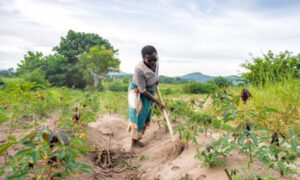
Ecosystem-based Adaptation: Working with nature to adapt to a changing climate
SDNS | 21 June 2023 | Online

Environmental Governance & Policy-Making
IHEID | Maison de la Paix

MOOC | Global Artic
EPFL | Online
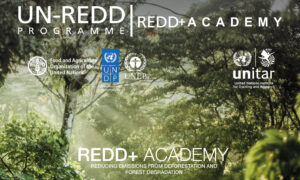
Fundamentals on REDD+
UN-REDD | Online
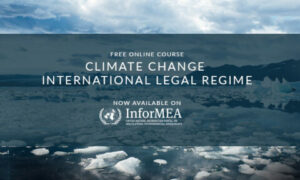
Climate Change International Legal Regime
InforMEA | Online

Introduction to Environmental Governance
InforMEA | Online
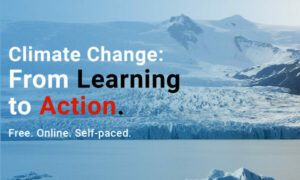
Climate Change: From Learning to Action
UN CC:Learn | Online
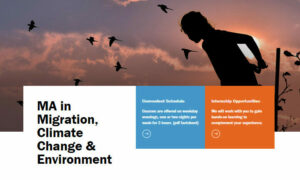
MA in Migration, Climate Change & Environment
Webster University Geneva
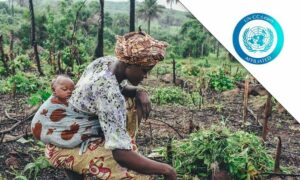
An Introduction to Climate Change and Human Rights
UN CC:Learn | Online
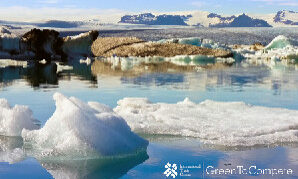
Becoming a Climate Resilient SME
ITC | 3 July 2023 | Online
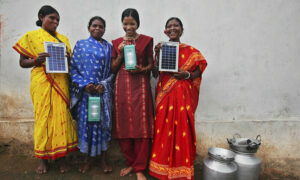
Gender Equality and Human Rights in Climate Action and Renewable Energy
UN CC:Learn | Online
GEN Events

Climate Impacts of Plastics: Global Actions to Stem Climate Change and End Plastic Pollution
GRID-Arendal and Geneva Environment Network | 20 March 2024

Briefing on the UN Climate Change Conference (COP28)
United Arab Emirates and Geneva Environment Network | 21 November 2023
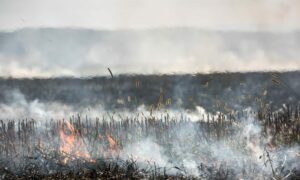
The Triple Planetary Crisis: Breaking Silos | INTECOL & Alternatiba 2022
Geneva Environment Network, International Association for Ecology | 31 August 2022

The Rights Holders’ Challenges Facing Climate Change | HRC50 Side Event
Geneva Climate Change Consultation Group, Geneva Environment Network | 24 June 2022

Plastics & Refuse-Derived Fuel: Fuel Product or Plastic Waste Export? | Geneva Beat Plastic Pollution Dialogues
International Pollutants Elimination Network, Geneva Environment Network | 9 June 2022
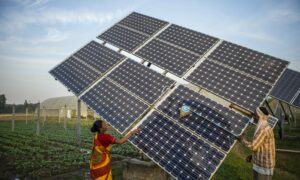
Clean Energy with Clean Conscience: The Importance of Human Rights, Health and Well-Being When Transitioning to Clean Energy for Sustainable Development
United Nations Office of the High Commissioner for Human Rights, World Health Organization, International Service for Human Rights, 2050Today, Franciscans International, Geneva Environment Network | 1 June 2022
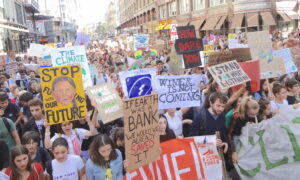
Celebrating the Right to a Healthy Environment: 50 Years of the Stockholm Declaration
Switzerland, Geneva Environment Network | 30 May 2022

Climate Tipping Points, Irreversibility and their Consequences for Society, Environment and Economies | Switzerland’s Proposal for an IPCC Special Report
Switzerland, Geneva Environment Network | 25 May 2022
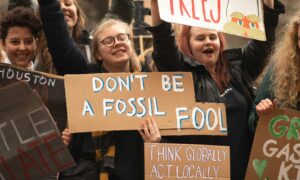
Subsidizing Fossil Fuels in Times of High Energy Prices | Fossil Fuel Subsidy Reform in Trade and Climate Discussions
International Institute for Sustainable Development, Friends of Fossil Fuel Subsidy Reform, Geneva Environment Network | 16 May 2022
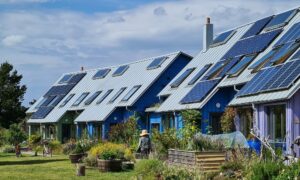
Briefing on the IPCC Climate Change 2022 Report: Mitigation of Climate Change
Geneva Environment Network | 8 April 2022

Geneva Stockholm+50 Dialogues | The Human Rights Council Contributions to Protecting Human and Natural Environment
France, Costa Rica, Earthjustice, Geneva Environment Network | 30 March 2022
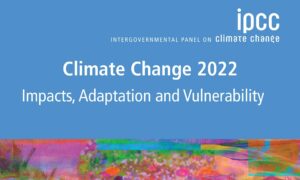
COP26-COP27 Briefing on the IPCC Climate Change 2022 Report: Impacts, Adaptation & Vulnerability
Geneva Environment Network | 7 March 2022

Cities & COP26 Negotiations | City Diplomacy Series
Geneva Environment Netowork | 16 December 2021

Leveraging Glasgow’s Ambition in Geneva’s Multilateral Processes | Geneva Cryosphere Hub
Geneva Environment Network | 12 November 2021
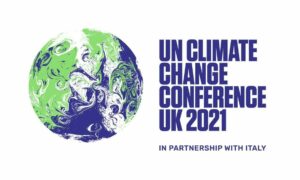
Update on Preparations for the UN Climate Change Conference | Briefing Ahead of UNFCCC COP26
Geneva Environment Network | 21 October 2021
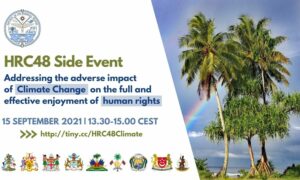
HRC48 Side Event | Addressing the Adverse Impact of Climate Change on the Full and Effective Enjoyment of Human Rights
Republic of the Marshall Islands | 15 September 2021

Equity Considerations in Nationally Determined Contributions
Geneva Environment Network | 7 December 2020

UN Climate Change Dialogues 2020
UN Climate Change | 23 November 2020 – 04 December 2020
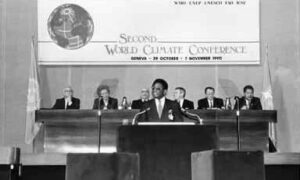
Climat : que fait la Genève internationale | Festival Alternatiba Léman
Geneva Environment Network | 23 September 2020
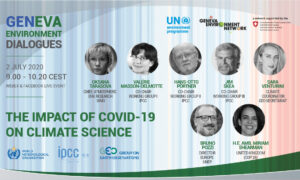
GENeva Environment Dialogues | The Impact of COVID-19 on Climate Science
Geneva Environment Network | 2 July 2020
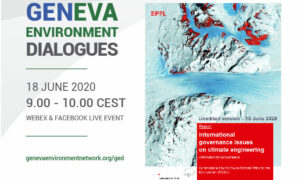
GENeva Environment Dialogues | International Governance Issues on Climate Engineering
Geneva Environment Network | 18 June 2020
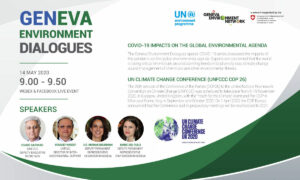
GENeva Environment Dialogues | UNFCCC COP26
Geneva Environment Network | 14 May 2020
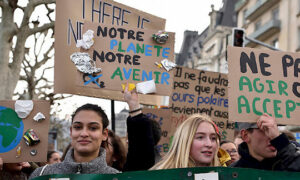
International Women’s Day | Climate Justice / Gender Justice
Geneva Environment Network | 5 March 2020
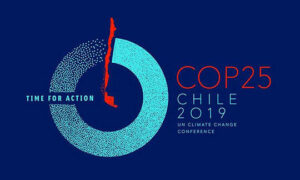
Outcomes of the UN Climate Change Conference Geneva | Geneva DeBriefing of UNFCCC COP25
Geneva Environment Network | 21 January 2020
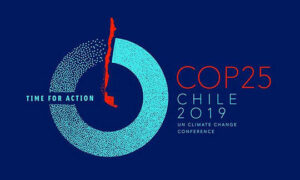
Update on Preparations for the UN Climate Change Conference | Briefing Ahead of UNFCCC COP25
Geneva Environment Network | 12 Novemeber 2019
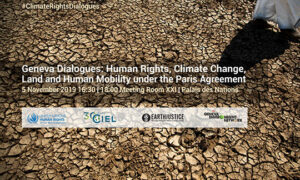
Geneva Dialogues | Human Rights, Climate Change, Land and Human Mobility under the Paris Agreement
Geneva Environment Network | 5 November 2019
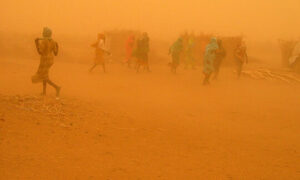
Rethinking Climate Change, Security and Migration | From Vicious to Virtuous Cycles
Geneva Environment Network | 30 April 2019
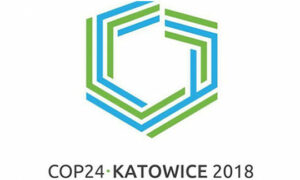
Human Rights & Climate Change | Briefing on UNFCCC COP24
Geneva Environment Network | 26 November 2018
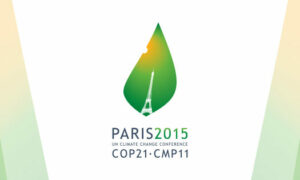
The Paris Agreement on Climate Change: Implications for the World of Work
Geneva Environment Network | 22 April 2016
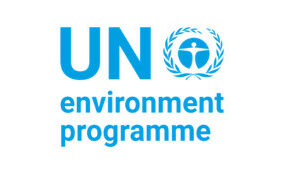
Launch of UNEP Emissions Gap Report Executive Summary
Geneva Environment Network | 6 November 2015

Climate change, cross-border displacement and human rights | is there a protection gap and will COP21 help close it?
Geneva Environment Network | 26 October 2015
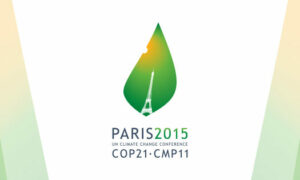
Climate Change COP21 and Beyond: Briefing on SDGs, INDCs and the contribution of the international trade community
Geneva Environment Network | 5 October 2015
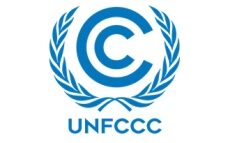
Briefing on UNFCCC ADP 2-8
Geneva Environment Network | 6 February 2015
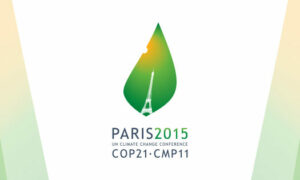
UNFCCC COP 21 Preparations and Challenges
Geneva Environment Network | 10 April 2014

World Water Day Roundtable | “Water for Life”: Expectations for the International Decade for Action 2005 – 2015
Geneva Environment Network | 22 March 2004


